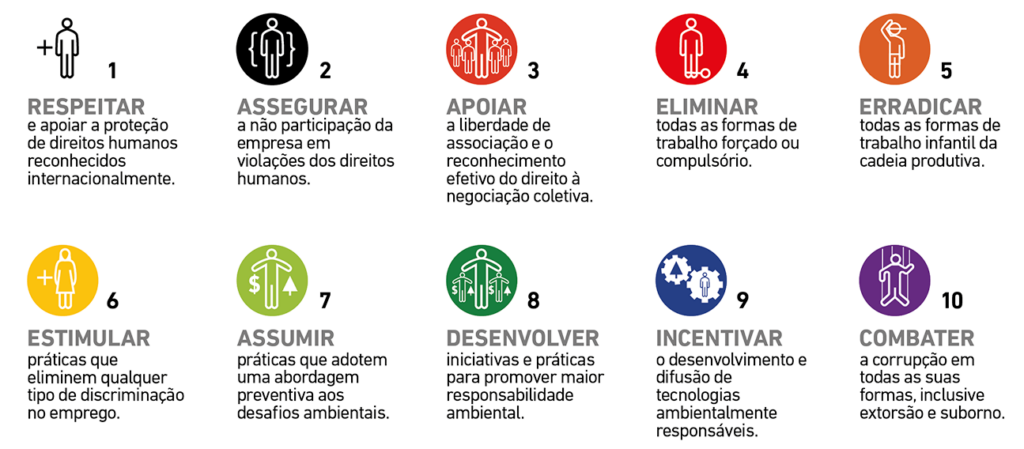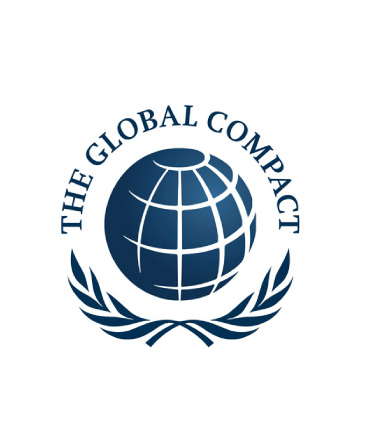Global Compact at Copel
The Global Compact is a UN initiative, whose purpose is to engage companies effectively in the areas of Human Rights, Labor, Environment and Anti-Corruption, so that, together with other social actors, they contribute to building a more inclusive and sustainable global economy.
To this end, ten principles were established, which currently dialogue directly with the 2030 Agenda and the Sustainable Development Goals (SDGs) and which must be aligned with the strategy of companies that adhere to the Global Compact.
The initiative is already considered the largest on the planet, in terms of Corporate Sustainability: there are more than 13 thousand members, in 160 countries.
Copel has been a signatory of the Global Compact since its launch in 2000 (by the then UN Secretary General, Kofi Annan), being the first company in the Brazilian electricity sector to have its participation approved in 2001. Since then, the Company has frequently engaged in various initiatives launched by the Global Compact, both at the global and local levels. Copel reaffirms its commitment to its consolidated good practices and seeks innovation when participating in new movements promoted by the Compact. The Brazilian Network is one of the largest of the Global Compact, with almost 2,000 signatories.
Formal adhesion is done by sending a letter to the UN Secretary General, in which the company declares its commitment to the Global Compact premises.

Copel and the SDGs
The Sustainable Development Goals, the SDGs, are part of the 2030 Agenda – Transforming our World. There are 17 goals to be achieved from 2015 to 2030. An action plan to eradicate poverty, protect the planet and ensure that people achieve peace and prosperity.

Other voluntary commitments by Copel are:
- Gender and Race Pro-Equity Program;
- Women Empowerment Principles – WEP;
- Business Pact for Integrity and Against Corruption;
- National Movement ODS We Can;
- Principles for Responsible Management Education – PRME;
- Business Network for Learning and Eradicating Child Labor;
- Business Contribution to the Promotion of the Green and Inclusive Economy;
- Declaration Call to Action for Governments to Combat Corruption;
- Eradication of Child Labor, Forced or Compulsory Labor;
- Combating the Sexual Exploitation of Children and Adolescents;
- Combating the Practice of Discrimination and Valuing Diversity;
- Prevention of moral harassment and sexual harassment; and
- Respect for free union association and the right to collective bargaining.






